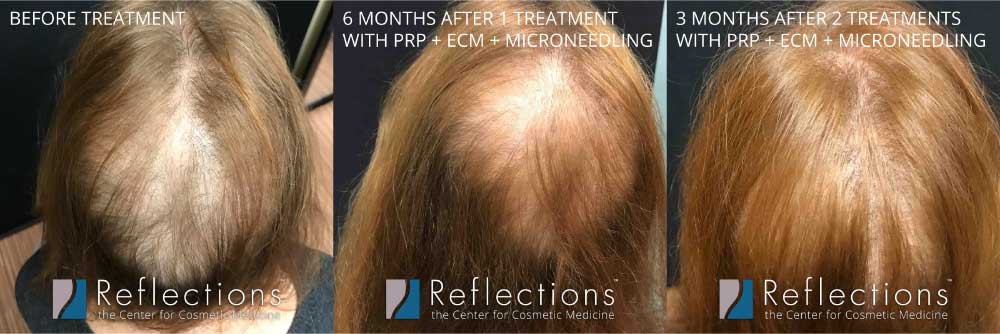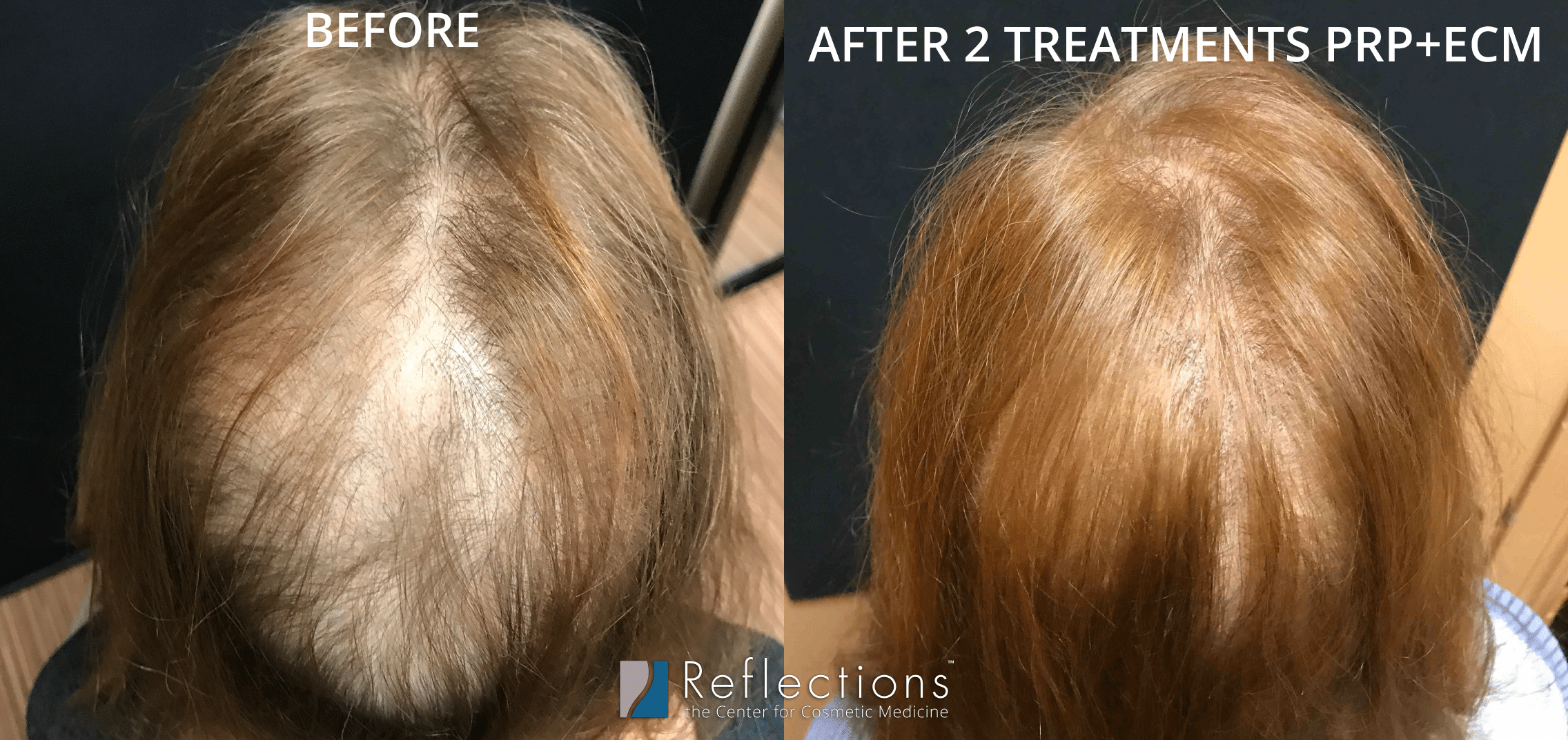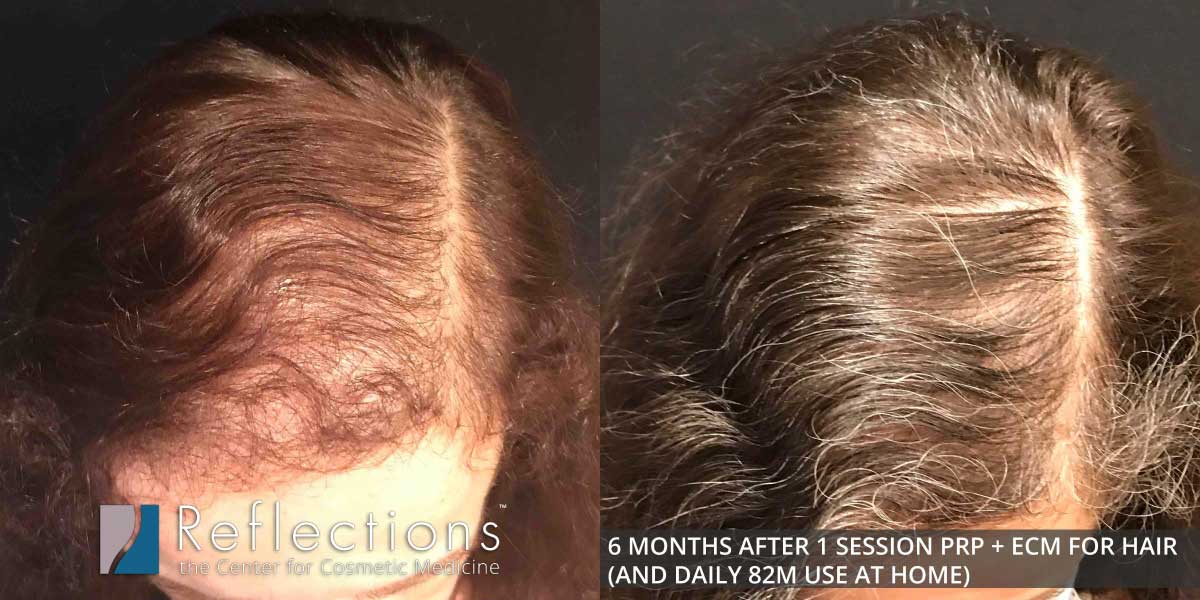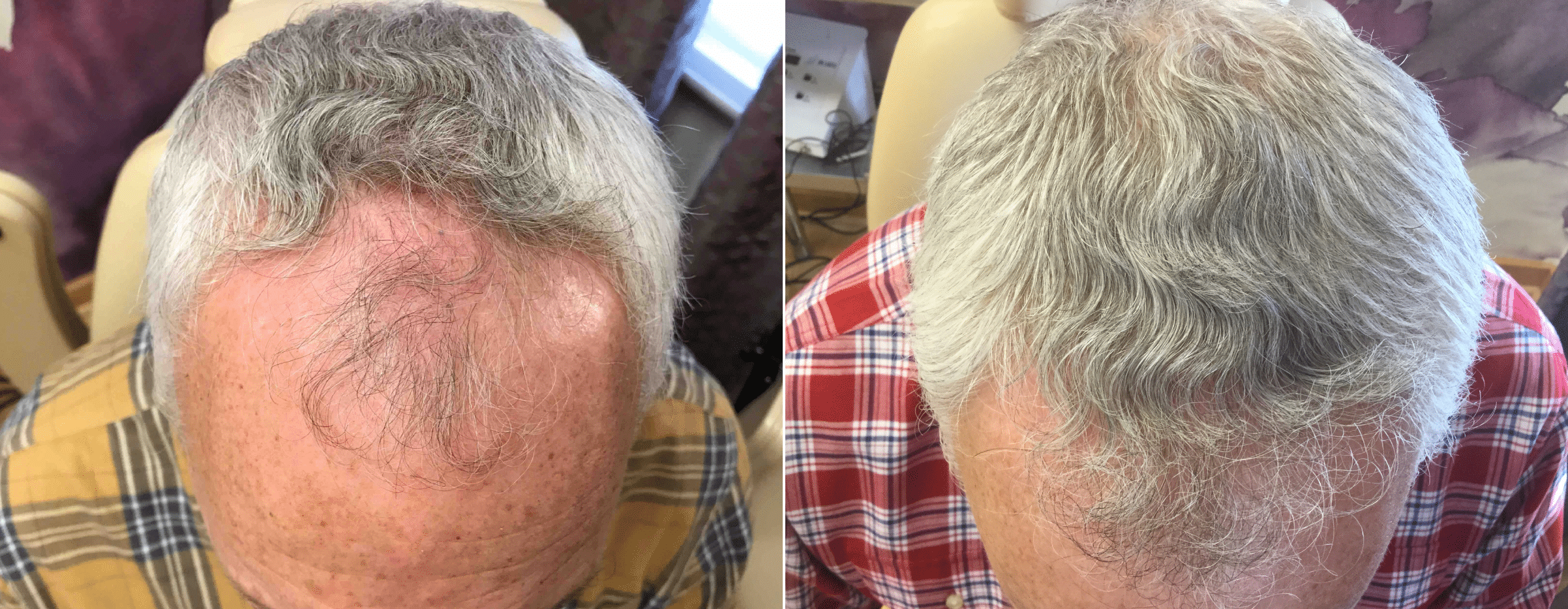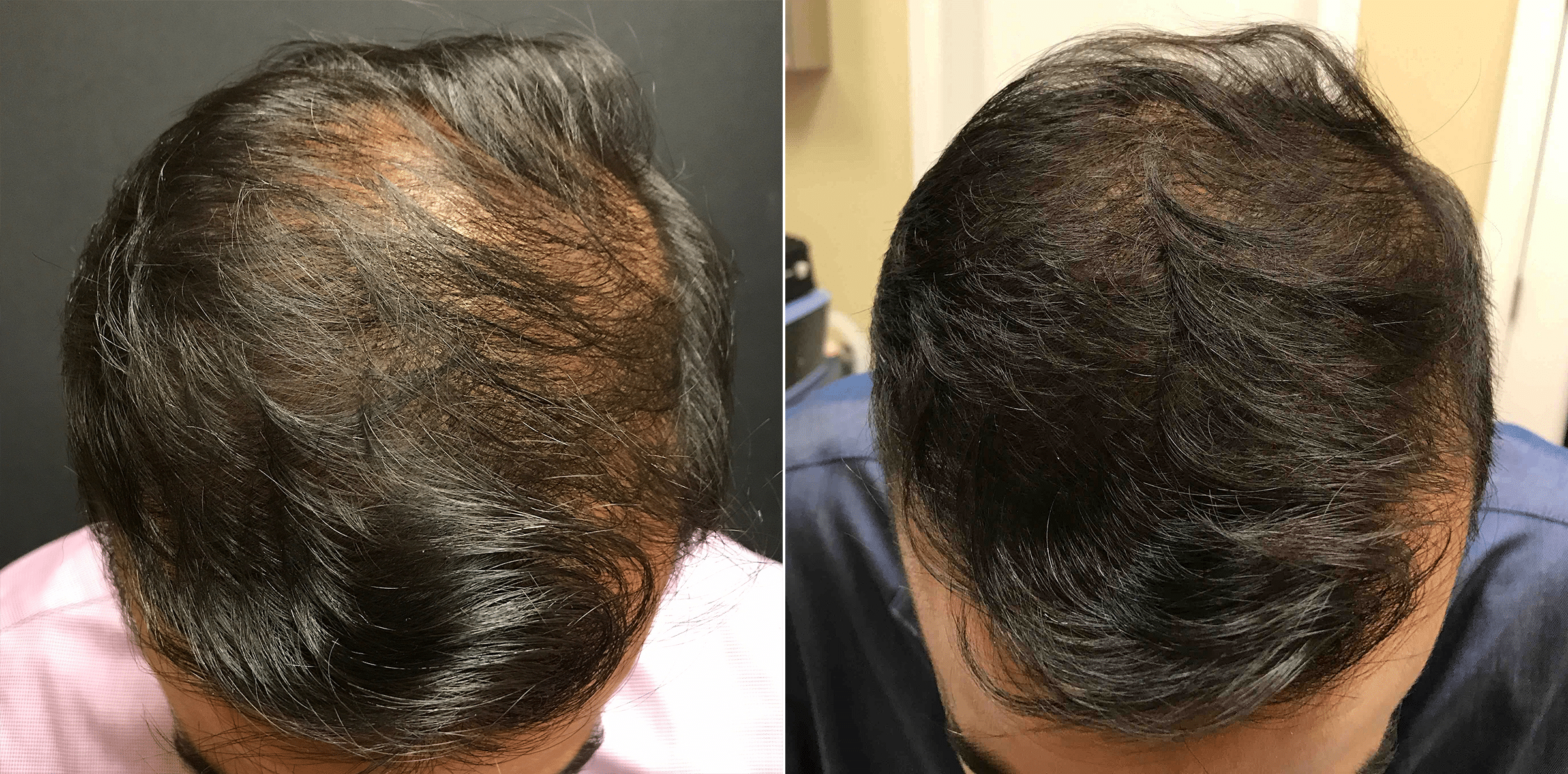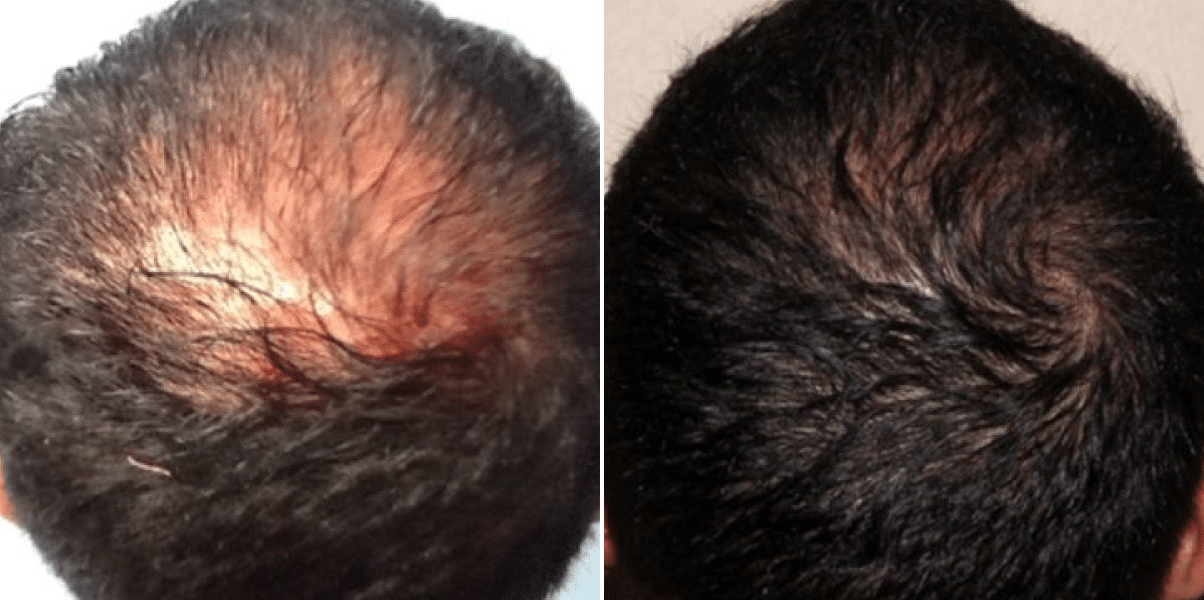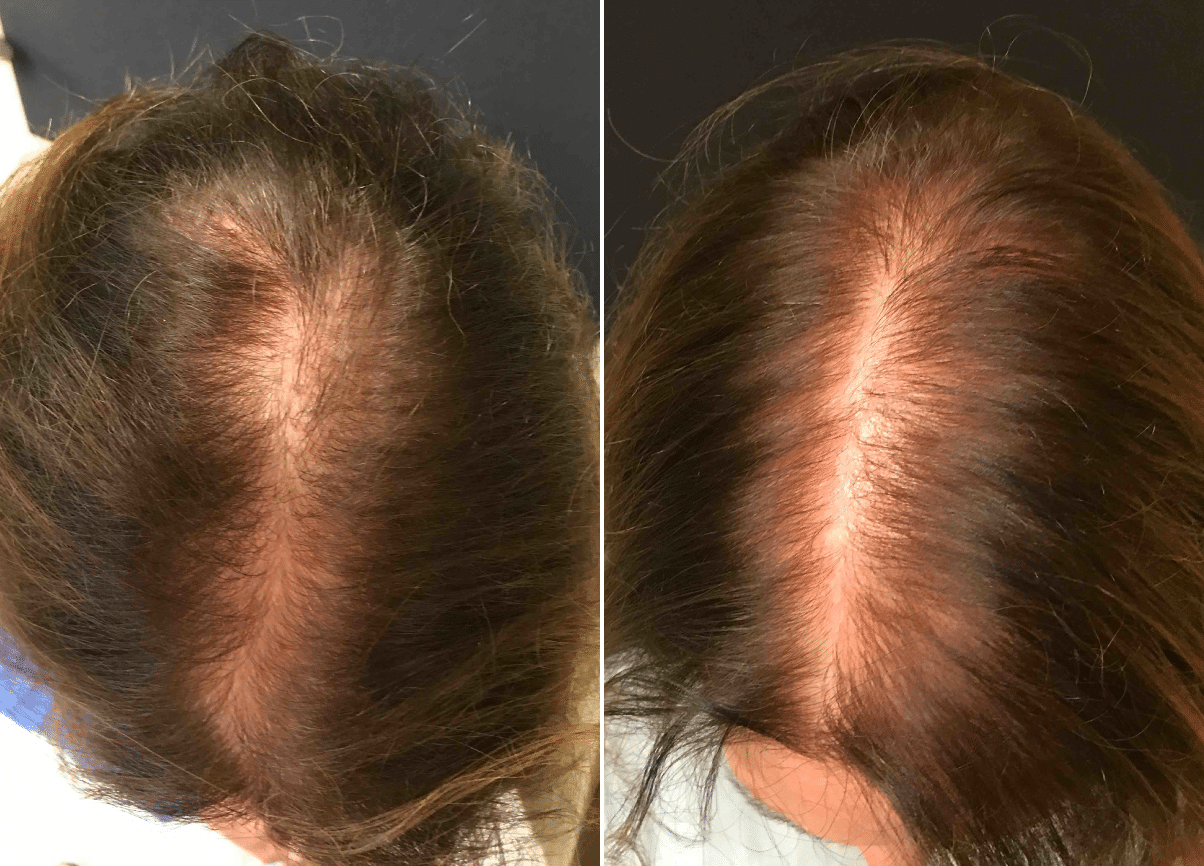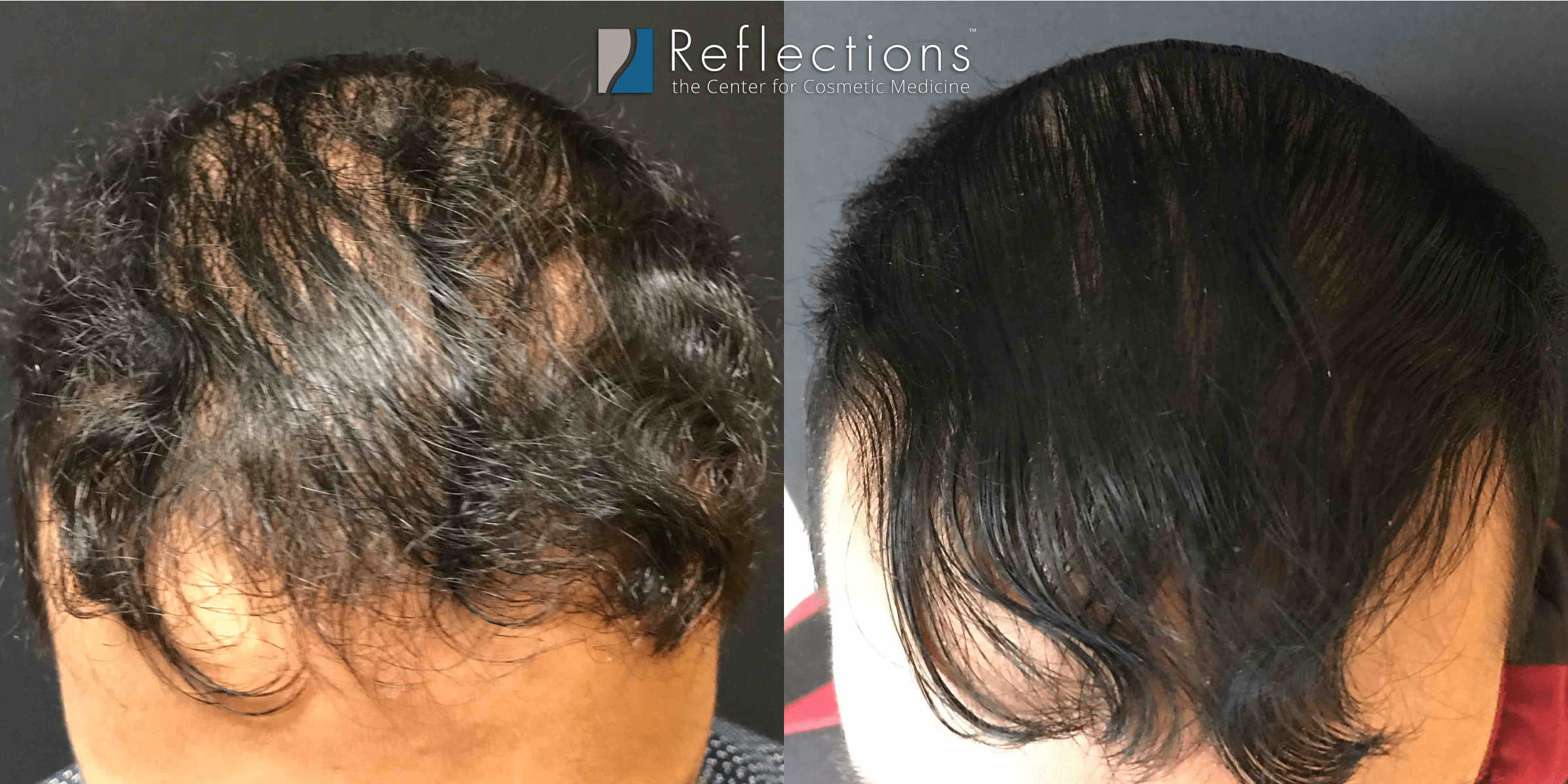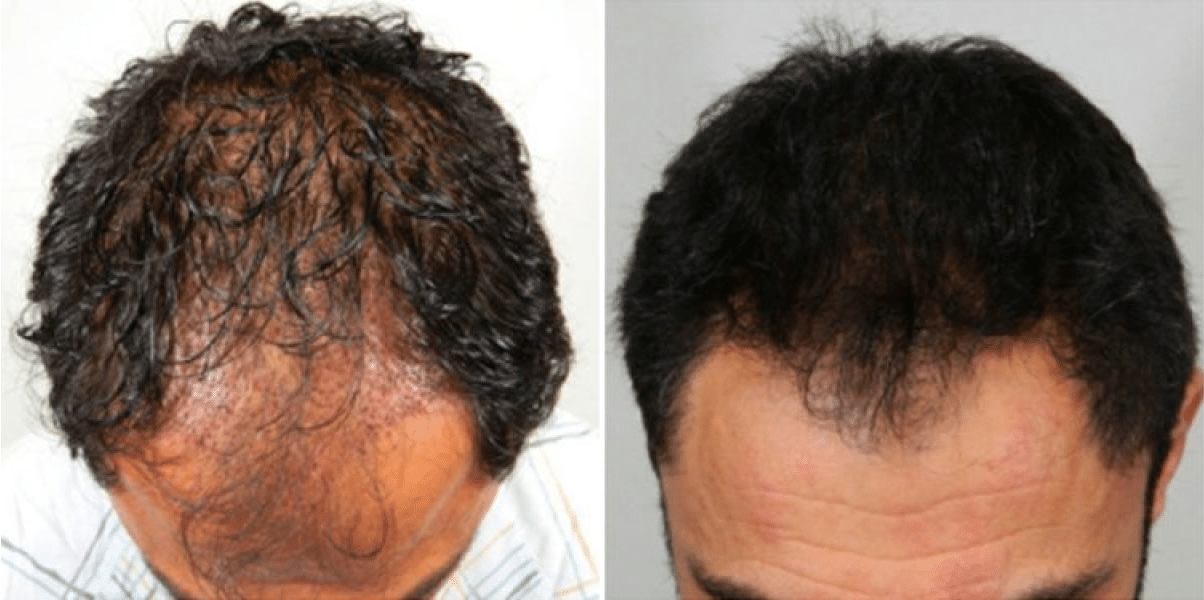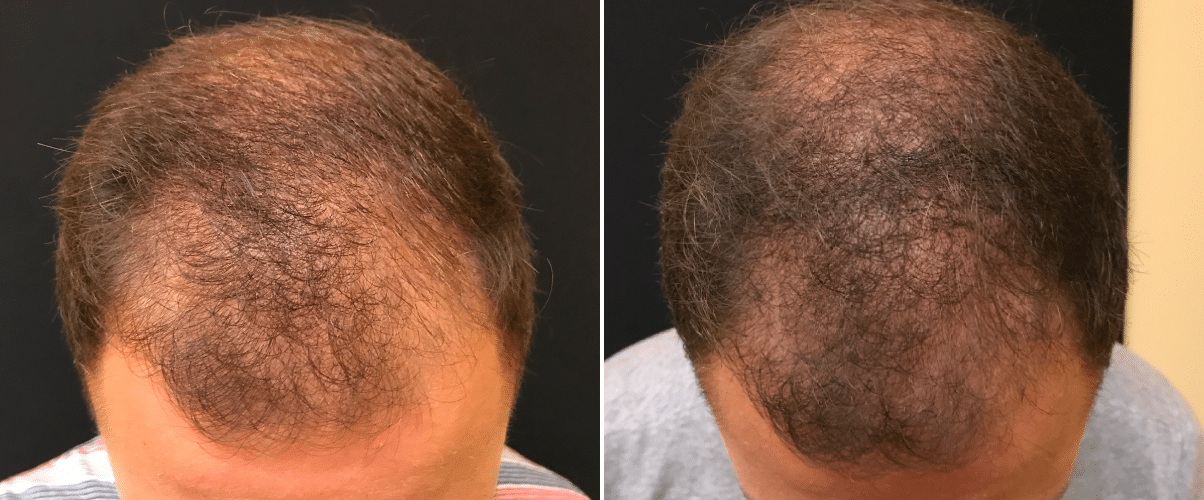Any patient with some hair remaining in the areas they want to treat is a candidate for nonsurgical hair regrowth treatments. Each case is unique, and that’s why we feel it’s important for you to come in and meet with the doctor, discuss your medical history, and be clinically evaluated before we can discuss what treatment(s) would work best for you, and what cost, downtime, maintenance plans, etc. might be associated with those.
However, anyone wanting to grow fuller, thicker, shinier, softer, healthier, or longer hair with less breakage can benefit from supplements and medications to support their healthy hair growth journey.
Hair Growth Supplements & Medications Quick Facts
- Supports healthy hair growth & maintenance after hair growth injections & hair transplant surgery
- Can address all facets of hair loss
- Cost-effective
Our Favorite Supplements & Medications for Healthy Hair Growth



Nutrafol for Men & Women
Nutrafol combines gender-specific and hormonally-accurate, scientifically-proven ingredients to help hair grow back fuller, thicker, more densely, shinier, softer, stronger, and longer. This product contains a naturally-derived plant-based supplement mix that includes 20 different ingredients including forms of vitamin E, saw palmetto, curcumin, ashwagandha, and hydrolyzed marine collagen. The men’s formula has recently added Saw Palmetto for DHT support, and that’s exactly the sort of nuance and specificity that makes this product so effective.
In clinical trials, of the women using Nutrafol Women’s Formula for 6 months, 80% saw better hair growth overall and thicker hair growth1
Research continues to show us that healthy hair growth requires a delicate balance of several systems, including nutrition, genetics, hormones (including stress-related cortisol), low inflammation, gentle styling, proper hair care, and scalp health. Nutrafol addresses all of the factors a supplement can in order to cover as many bases as possible, and that’s what we believe makes it so effective, especially compared to the average hair growth supplement which is usually targeting one or maybe two of these.
There is a separate women’s balance for menopausal women, but our office tends to prescribe the men’s version in this case, because it is stronger.
Nutrafol is the only supplement we’ve ever seen do studies on efficacy in menopausal women and men and women of different ethnicities (inlcuding African American, Asian, Hispanic Caucasian, and Non-Hispanic Caucasian participants), two groups that are often under-represented in studies in general. In both cases, the results were outstanding.
For the study involving all ethnicities, the results showed:
- 84% of pre-menopausal women of all ethnicities saw stronger hair with less breakage and thicker hair2
- 81% of men of all ethnicities saw more scalp coverage2
For menopausal and post-menopausal women, the study results showed:
- 80% of menopausal women saw less shedding after 3 months of use3
- 76% of menopausal women saw thicker hair after 6 months of use3
- 100% of menopausal women saw a visible improvement in hair growth after 9 months of use3
- How to Get It: Available for purchase in both offices
- How to Use It: Take 4 capsules in the morning with a meal that includes fat (for best absorption); use indefinitely
- When to See Results: After 3 to 6 months of consistent daily use
- Best For: Men & women who are experiencing thinning hair and breakage
- Cost: $88.00 plus tax for 1 month supply
- Best to Use With: Hair growth injections and other prescribed at-home treatments
Viviscal Pro for Men & Women

The key ingredients of Viviscal Extra-Strength formulation are AminoMar C™ marine complex, Equisetum arvense sp. (horsetail), containing a naturally occurring form of silica), Malpighia glabra (acerola cherry) which contains Vitamin C, Biotin and Zinc (men’s only), three vitamins we know can be lacking in the diet and contribute to lackluster, thin, and unhealthy hair.
Viviscal is significantly less expensive than Nutrafol, but covers fewer of the potential underlying causes and it not fully natural or plant-derived. Our physicians will help guide you between the two to choose the best choice for your needs.
Viviscal Pro has two distinct formulations, one for men and one for women. We do tend to recommend the male version for women who are beyond menopause.
- How to Get It: Available for purchase in both offices
- How to Use It: Take twice daily for 3-6 months
- When to See Results: After 3 to 6 months of consistent daily use
- Best For: Men & women who are experiencing thinning hair
- Cost: $160.00 for 180 tablets (3-month supply) or $60.00 for 60 tablets (1 month supply), plus tax
- Best to Use With: Hair growth injections and other prescribed at-home treatments
Ketoconazole (Nizoral) Shampoo
Ketoconazole, (Nizoral) shampoo is available over-the-counter at most supermarkets and big box stores. Just be sure to check the strength as some formulations are weaker than others. It is not yet FDA-approved to treat hair loss because it was originally developed to treat fungus and yeast infections, and now that the drug has become available widely (and cheaply), there is little money to be made from a new FDA clearance (something that is very expensive to obtain). But new studies do suggest that Ketoconazole both effectively treats the Pityriasis (also called Malassezia) fungus that commonly inhabits the scalp and reduces the androgen hormones that are responsible for hair loss in men (no studies have been done on women thus far)10.
One study in 1998 compared ketoconazole shampoo 2% to the proven hair loss drug minoxidil in men with androgenic alopecia and concluded that hair density, size, and proportion of anagen follicles were improved almost similarly by both ketoconazole and 2% minoxidil regimens10.
- How to Get It: Available over-the-counter at most supermarkets
- How to Use It: Wash hair with shampoo 2-3 times per week
- When to See Results: 2-4 weeks
- Best For: Those looking to treat pityriasis or those with hair loss
- Cost: May vary depending on where purchased
- Best to Use With: Hair growth injections and other prescribed at-home treatments
Minoxidil (Rogaine) – Specialty Formulation 82M
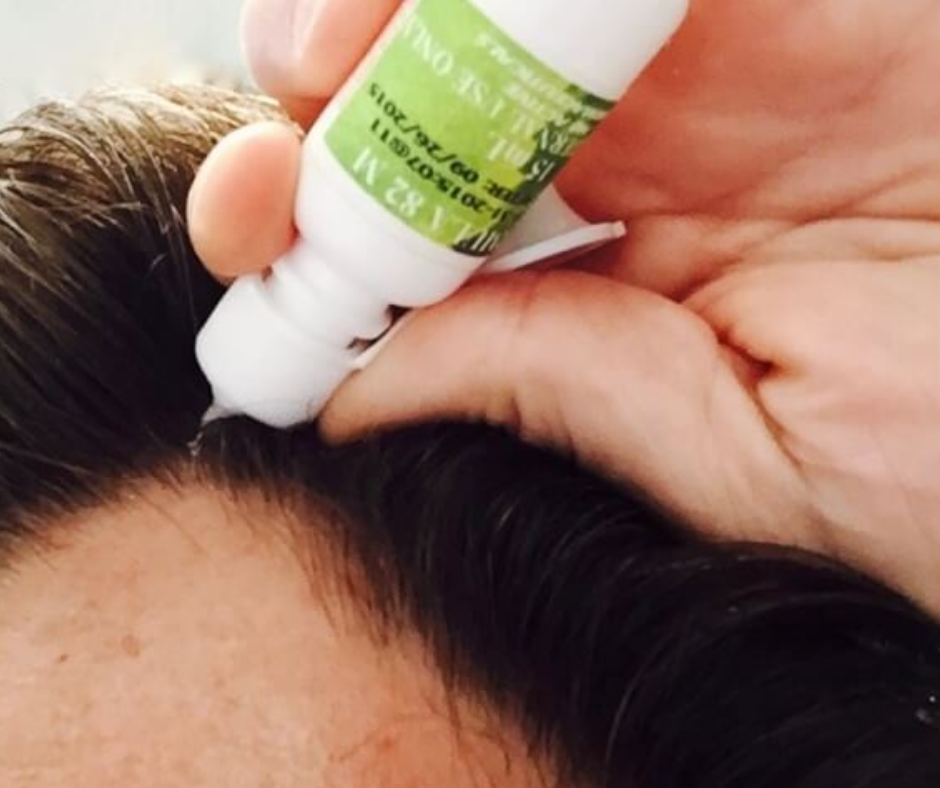 Available over-the-counter, minoxidil foam and shampoo is often greasy and unpleasant to use – which is why we have a specialty pharmacy compound M82 for our patients.
Available over-the-counter, minoxidil foam and shampoo is often greasy and unpleasant to use – which is why we have a specialty pharmacy compound M82 for our patients.
Minoxidil slows or stops hair loss, and for some patients it may help create the right environment in the scalp for hair to start re-growing itself. This process is slow compared to other options, taking at least 6 months to start seeing any results, and longer for the full results it may provide for you.
Minoxidil is the only drug to have received FDA approval (proven safe and effective treatment) for both male pattern balding (androgenic alopecia) and female pattern hair loss.
Possible side effects of Rogaine, or Minoxidil, include scalp irritation (which is generally reduced or eliminated by using the 82M formulation) and unwanted hair growth on the adjacent skin of the face and hands, which can be greatly reduced by carefully washing hands and any areas of accidental spread during application.
- How to Get It: Our doctors will call it in to the pharmacy, who will deliver it to you
- How to Use It: Apply twice daily for men, and once daily for women; continue indefinitely
- When to See Results: After 6-9 months of consistent daily use
- Best For: Female or male pattern hair loss (hormonally related hair loss)
- Cost: Depends upon pharmacy
- Best to Use With: Hair growth injections and other prescribed at-home treatments
Finasteride (Brand Names: Propecia, Proscar)
Finasteride, or Propecia, is one of only three treatments approved by the FDA (reviewed and found to be safe and effective) for treatment of male pattern balding (androgenic alopecia). This prescription pill medication is used by men and some women who are beyond menopause. This treatment works best for men under 60.
This medication works by blocking a potent form of testosterone called DHT (dihydrotestosterone) by about 70%, which attack hair follicles and cause hair loss in men. One study showed you could expect about to stop loss and expect a 30% improvement in regrowth with continuous Finasterid use9, which is less effective than Dutasteride5,6,7,8.
In one study, finasteride stopped hair loss in 83% of men with male pattern baldness who took it for two years4.
Rare side effects of finasteride include diminished sex drive and sexual function and an increased risk of prostate cancer. Women who are or may be pregnant need to avoid touching crushed or broken tablets due to risk of birth defects in male babies.
- How to Get It: Our doctors will write you a prescription
- How to Use It: Typically 1 pill once daily (see bottle for your specific prescribing info)
- When to See Results: Start to see results around 3 to 4 months; full results at 6-9 months
- Best For: Men under 60 who are experiencing hair thinning and hair loss and want to stop or slow that process
- Cost: Depends upon pharmacy
- Best to Use With: Hair growth injections and other prescribed at-home treatments
Oral Dutasteride (Brand Name: Avodart)
Dutasteride has been found in several studies to induce hair regrowth in men more rapidly and to a greater extent than even the highest approved dosage of finasteride5,6,7,8, due to its ability to more completely shut down the DHT production in the scalp.
This drug has also been used to help shut down hirsutism (excessive hair growth in the face and body) caused by hyperandrogenism due to persistent adrenarche syndrome in women. And it is sometimes used off-label to treat women with hair loss, but this needs to be managed by a physician who understands the nuances and hormones at play in that individual.
Women who are or may be pregnant need to avoid touching crushed or broken tablets due to risk of birth defects in male babies.
- How to Get It: Our doctors will write you a prescription
- How to Use It: Typically 1 pill once daily (see bottle for your specific prescribing info)
- When to See Results: Start to see results around 3 to 4 months; full results at 6-9 months
- Best For: Men with male pattern balding
- Cost: Depends upon pharmacy
- Best to Use With: Finasteride and/or hair growth injections

View More Before & Afters
More Before & AftersWhat to Expect As You Start Treatment for Hair Loss
Preparing for a consultation? Use this checklist to make the most of your conversations with a hair loss doctor:
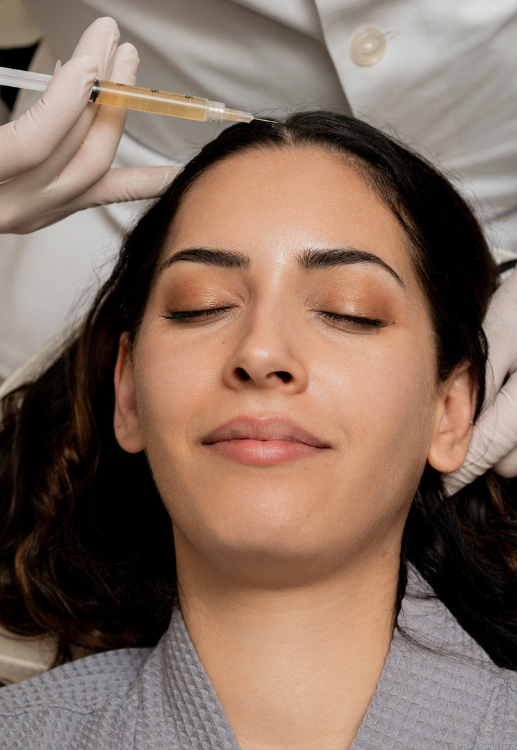

Why Choose Reflections for Your Hair Loss Treatments
Reflections Center is home to a team of doctors who specialize in all aspects of hair loss treatments and hair growth injections of all kinds. By combining all of this knowledge and ensuring you always see your doctor, our MedSpa ensures you get the very best and most comprehensive hair treatments in New Jersey.
Combining Supplements & Medications with Hair Growth Injections
Just like we provide a variety of various supplements and medications, to treat the various causes of hair loss, our doctors also provide several different types of hair growth injections and treatments. We are always adapting our protocols to reflect the latest science and achieve the best results we can for our patients.
Two Convenient Locations in Central & North New Jersey
Finding reliable care near your home is hard. But we have two offices, conveniently located where 78 and 287 meet in the Martinsville section of Bridgewater, and where 78 meets 80 near NYC, in Livingston, NJ.
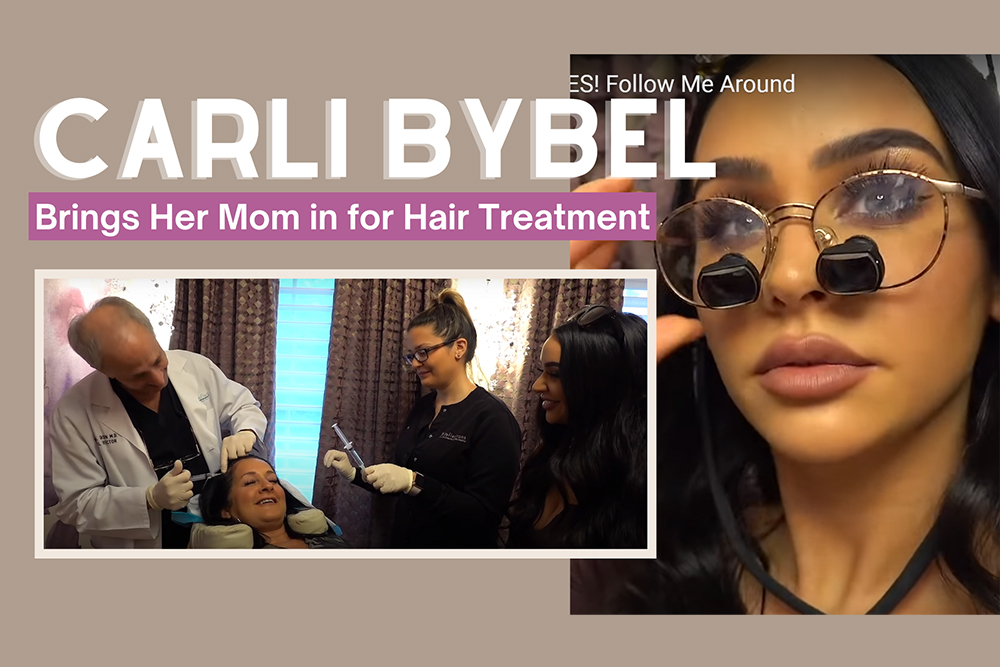
Blog
Carli Bybel Brings Her Mom to Our Office for Hair Injections
By now, you all know how we feel about Concentrated Platelet injections for...
Read More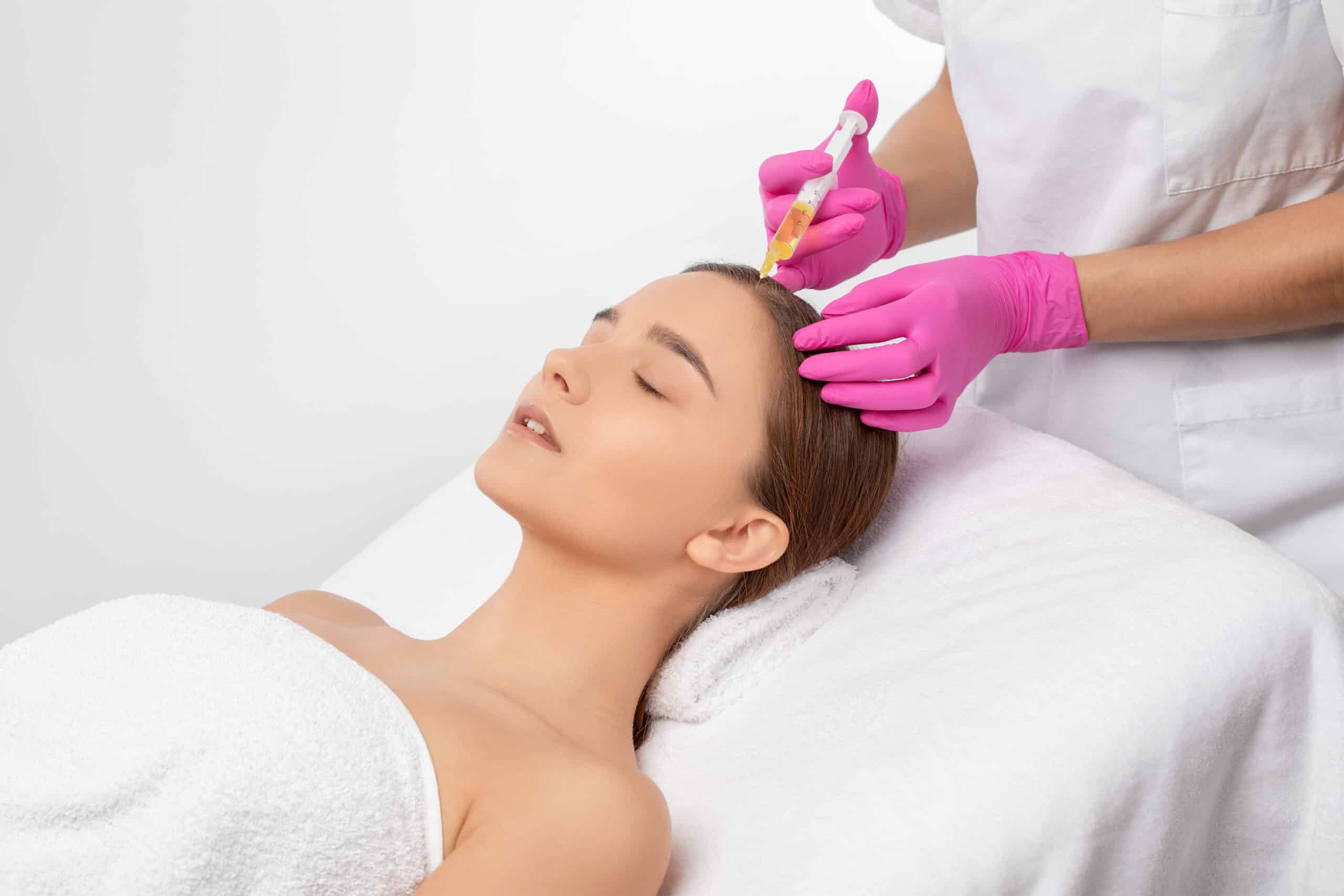
Blog
Private: Injections for Hair Loss: What’s Changed? Updates with Dr. Chasin
Over the last 5 or so years, injections for hair loss have become the go-to...
Read More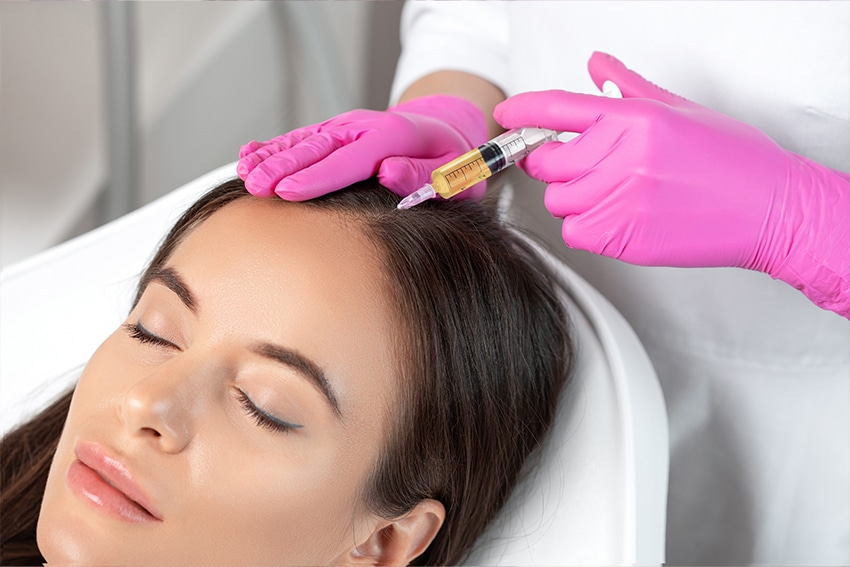
Blog
Private: Latest Science on PRP Injections for Hair Loss [Newly Updated]
Over the last 5 or so years, PRP injections for hair loss have become the go-to...
Read MoreFrequently Asked Questions About Medicines & Supplements For Hair Loss
- What you should think about prior to your appointment to discuss hair loss treatment options?
- How much time at home are you willing to commit to treating this on a regular basis – and in what ways? for example: some patients may be willing to modify their diet, but not to take medications. Other patients may be willing to take pills, but not apply a medication to their scalp. Others might be willing to do anything and spend up to an hour a day at home, but don’t want to avoid coming back into the office as much as possible.
- Are you willing to and able to take certain medications? (mostly just think about if you’re willing to invest the time and money monthly to take medications – the doctor will evaluate whether it’s a good fit for you health-wise). Many of the medications used for hair loss involve applying a medication to your scalp every day once or twice a day and allowing it to sit before rinsing off. You might be willing to take a pill, but not to consistently apply something like this.
- How much downtime would you able to take for treatment?
- What budget could you see yourself spending in the short term and long term for this?
- How frequently are you willing to come back into the office for treatment?
- How important is it to see a result quickly vs. not as quick but bigger result that lasts longer?
- What information will my hair loss doctor want to know?
- When did you start noticing hair loss?
- Does anyone else in your family, particularly your parents or siblings, have hair loss or thinning, too? If so, try to bring a photo so we can assess their pattern of hair loss vs. yours.
- What medications and vitamins are you taking?
- Has there been a traumatic event recently or around the time you started to see hair loss that could have triggered this? Stress is a key culprit, but so are illnesses and diseases, hormonal changes, general anesthesia, etc.
Sources:
1. Glynis Ablon MD FAAD, and Sophia Kogan MD; <“a href=”https://jddonline.com/articles/a-six-month-randomized-double-blind-placebo-controlled-study-evaluating-the-safety-and-efficacy-of-a-S1545961618P0558X/”>A Six-Month, Randomized, Double-Blind, Placebo-Controlled Study Evaluating the Safety and Efficacy of a Nutraceutical Supplement for Promoting Hair Growth in Women With Self-Perceived Thinning Hair; Journal of Drugs in Dermatology, May 2018. Volume 17, Issue 5
2. Thomas J. Stephens, PhD; Sheryl Berkowitz, MS; Tess Marshall, ND; Sophia Kogan, MD; and Isabelle Raymond, PhD; “a href=”https://jcadonline.com/hair-growth-supplement-diverse-ethnicities/”>A Prospective Six-month Single-blind Study Evaluating Changes in Hair Growth and Quality Using a Nutraceutical Supplement in Men and Women of Diverse Ethnicities.Journal of Clinical & Aesthetic Dermatology. 2022;15(1):21–26.
3. Sheryl Berkowitz, MS, Sophia Kogan, MD; Tess Marshall; Isabelle Raymond, PhD; Evaluating the Efficacy of a Standardized Nutraceutical to Improve Hair Growth and Quality in Menopausal Women: A Nine Month Subjective Single-Blind Prospective Study. Presented at the American Society for Dermatologic Surgery 2020 Conference
4. Jerry Shapiro, Keith D. Kaufman; Use of Finasteride in the Treatment of Men With Androgenetic Alopecia (Male Pattern Hair Loss). Journal of Investigative Dermatology Symposium Proceedings; Volume 8, Issue 1, June 2003, Pages 20-23.
5. Supenya Varothai & Wilma F. Bergfeld; Androgenetic Alopecia: An Evidence-Based Treatment Update. American Journal of Clinical Dermatology volume 15, pages217–230 (2014)
6. Lemke TL, Williams DA (2008). Foye’s Principles of Medicinal Chemistry (6th ed.). Lippincott Williams & Wilkins. pp. 1286–. ISBN 978-0-7817-6879-5.
7. Dhurat, Rachita; Sharma, Aseem; Rudnicka, Lidia; Kroumpouzos, George; Kassir, Martin; Galadari, Hassan; Wollina, Uwe; Lotti, Torello; Golubovic, Masa; Binic, Iva; Grabbe, Stephan; Goldust, Mohamad (May 2020). “5‐Alpha reductase inhibitors in androgenetic alopecia: Shifting paradigms, current concepts, comparative efficacy, and safety“. Dermatologic Therapy. 33 (3): e13379. doi:10.1111/dth.13379. PMID 32279398. S2CID 215748750.
8. Zhou Z, Song S, Gao Z, Wu J, Ma J, Cui Y (2019). “The efficacy and safety of dutasteride compared with finasteride in treating men with androgenetic alopecia: a systematic review and meta-analysis“. Clinical Interventions in Aging. 14: 399–406. doi:10.2147/CIA.S192435. PMC 6388756. PMID 30863034.
9. Varothai S, Bergfeld WF (July 2014). “Androgenetic alopecia: an evidence-based treatment update“. American Journal of Clinical Dermatology. 15 (3): 217–30. doi:10.1007/s40257-014-0077-5. PMID 24848508. S2CID 31245042.
10. Piérard-Franchimont C1, De Doncker P, Cauwenbergh G, Piérard GE.; Ketoconazole shampoo: effect of long-term use in androgenic alopecia. Dermatology. 1998;196(4):474-7.

Dr. Mitchell Chasin is a Cosmetic & Laser Physician at Reflections Center. Dr. Chasin believes strongly that the best cosmetic physicians are those who are dedicated to mastering their craft through continuing education and collaboration with the industry’s top doctors.






